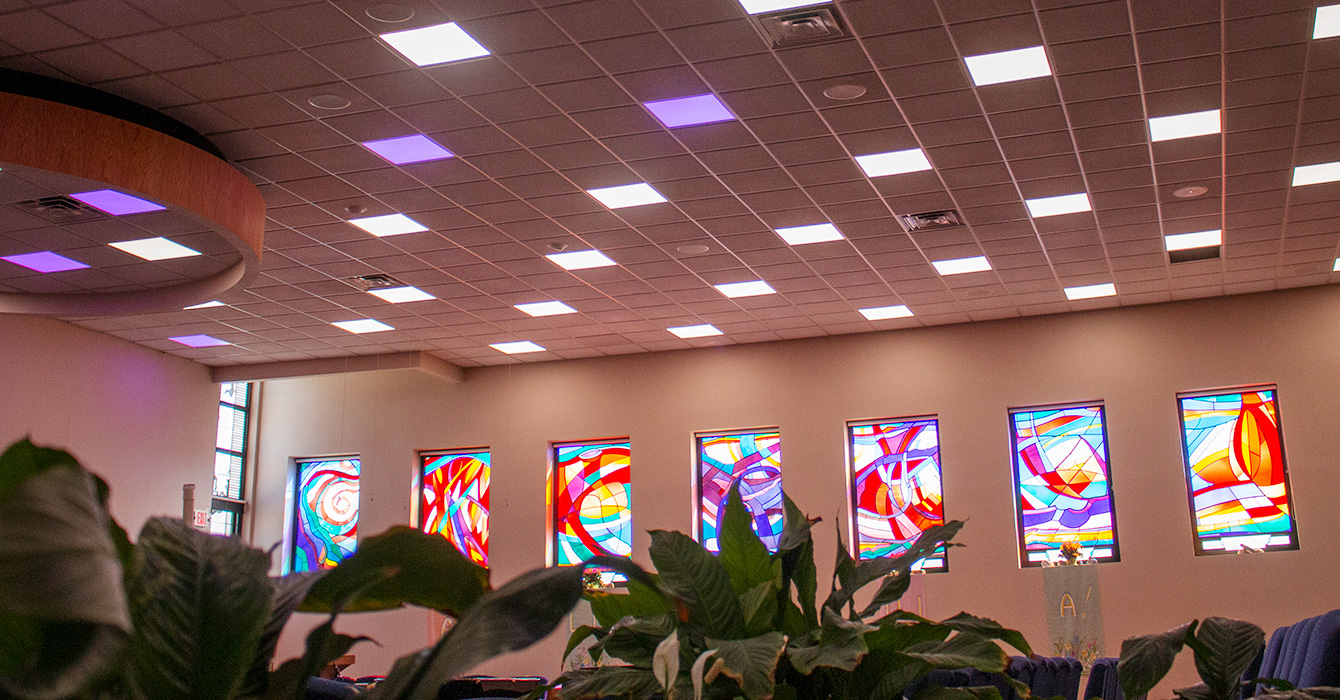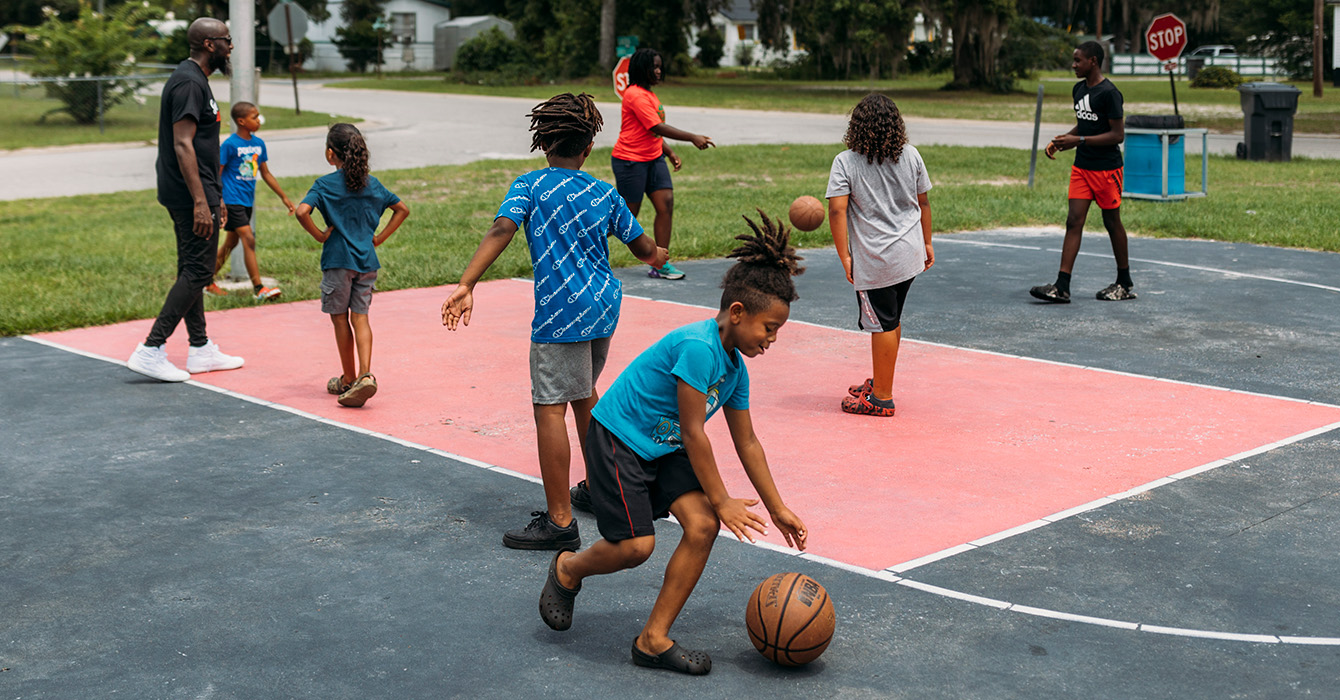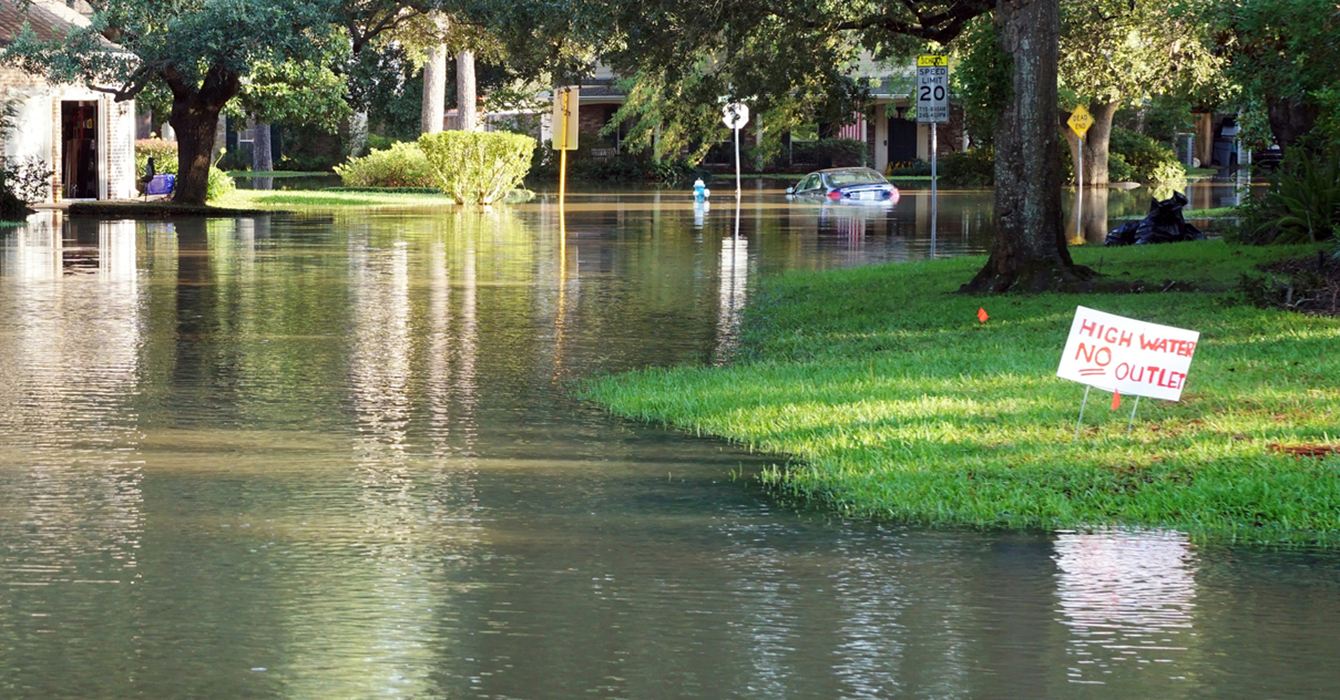People in West Virginia’s Kanawha Valley noticed something strange in January 2014.
The air smelled like licorice.
At first, they thought nothing of it. Strange odors are commonplace in “the chemical valley.” Then the water also began to smell like licorice. Soon, news broke that a faulty storage tank had contaminated the Elk River with crude 4-methylcyclohexanemethanol (MCHM), a chemical foaming agent used to clean dirt from lumps of coal before they are burned in power plants.
That contaminated water flowed into a treatment facility and continued unabated into the water lines. Around 300,000 people in nine West Virginia counties were unable to drink, cook with or even bathe in the water from their taps for days on end.
A few months later, the Rev. Robin Blakeman was asked to fill in for a pastor at a Presbyterian church in the southern part of the state. As a “supply preacher,” she typically just uses whatever text is already scheduled in the lectionary.
“The text that day lent itself to water issues,” she said. “And I mentioned something about the need to keep water clean and the example of the MCHM crisis.”
Not long after that statement, a woman in the choir got up and stormed out of the sanctuary, slamming doors behind her.
“I have not been invited back to that particular church,” Blakeman said.
The scene probably could have played out in many congregations anywhere in the United States, especially in our nation’s current political climate.
But tensions can be especially fraught in Blakeman’s native West Virginia, a politically conservative state that has a long, deep and complicated relationship with fossil fuels. Even here, though, some churches are finding ways to bridge the divide between political conservatism and ecological conservation.
How do you introduce challenging topics in your congregation in ways that open up conversation?
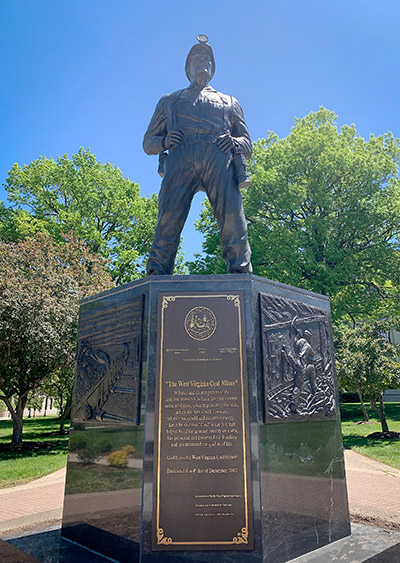
The ‘company gospel’
West Virginians have a reason for feeling so strongly about the coal industry.
“Coal is bound up in our identity,” said the Rev. Brad Davis, who pastors a small Methodist congregation in the heart of the state’s southern coalfields. “We spiritualize coal to an extent that it becomes our life-giving sacrament. That’s what gave us life.”
That’s not an exaggeration. Extractive industries — coal, oil and natural gas, but also timber and minerals — were the state’s biggest moneymakers throughout the 19th and 20th centuries. Miners were often unfairly paid and subjected to terrible working conditions, but they found identity in their occupation. They took pride in knowing the coal they dug from the earth powered the steel mills that built modern America.
Money from fossil fuels built much of West Virginia, including its churches. If you wander into a small West Virginia town and find a big old church built with cut stone and intricate stained-glass windows, chances are you’ll find a local coal magnate’s name on the attendance roll.
Industry infused religious life in other ways, too.
“The company built the church house in the camp the company built, and hired the pastor to come in and preach the company gospel,” Davis said. “When the minister stands in the pulpit and says, ‘Be obedient to God,’ he’s really saying, ‘Be obedient to the company.’”
Those companies are mostly gone now. There were more Walmart employees than company coal miners in West Virginia in 2021 — around 13,000, compared with 11,300, according to data from the retail giant and the West Virginia Office of Miners’ Health Safety & Training.
But as Blakeman saw firsthand in that Presbyterian church, the “company gospel” remains.
Still, there have always been flashes of rebellion in King Coal’s domain. In the early years of the 20th century, as tensions mounted in what would become the largest labor uprising in United States history, miners began to tire of the pro-company, anti-union sermon preached in company pulpits.
How much do you know about the origin story of your church? How might telling the truth about your congregation’s past, including the difficult parts, create opportunities for new life?
As David A. Corbin writes in “Life, Work and Rebellion in the Coal Fields”: “The preacher suffered a decline in prestige and influence as the miners showed him little respect and never looked to him for personal advice or counsel.”
So workers found their own shepherds in miner-preachers. Though not ordained and largely uneducated, these men held prayer meetings before and after shifts. They wrote pro-union hymns and preached about a Jesus who calls his followers to unity and sacrifice.
“As a result, it was the miner-preacher, not the company preacher, from whom the miners sought personal counsel in secular as well as spiritual matters,” Corbin writes.
It was “liberation theology” a half-century before anyone was commonly using that term.
Who are the “miner-preachers” you should be listening to and empowering in your community?
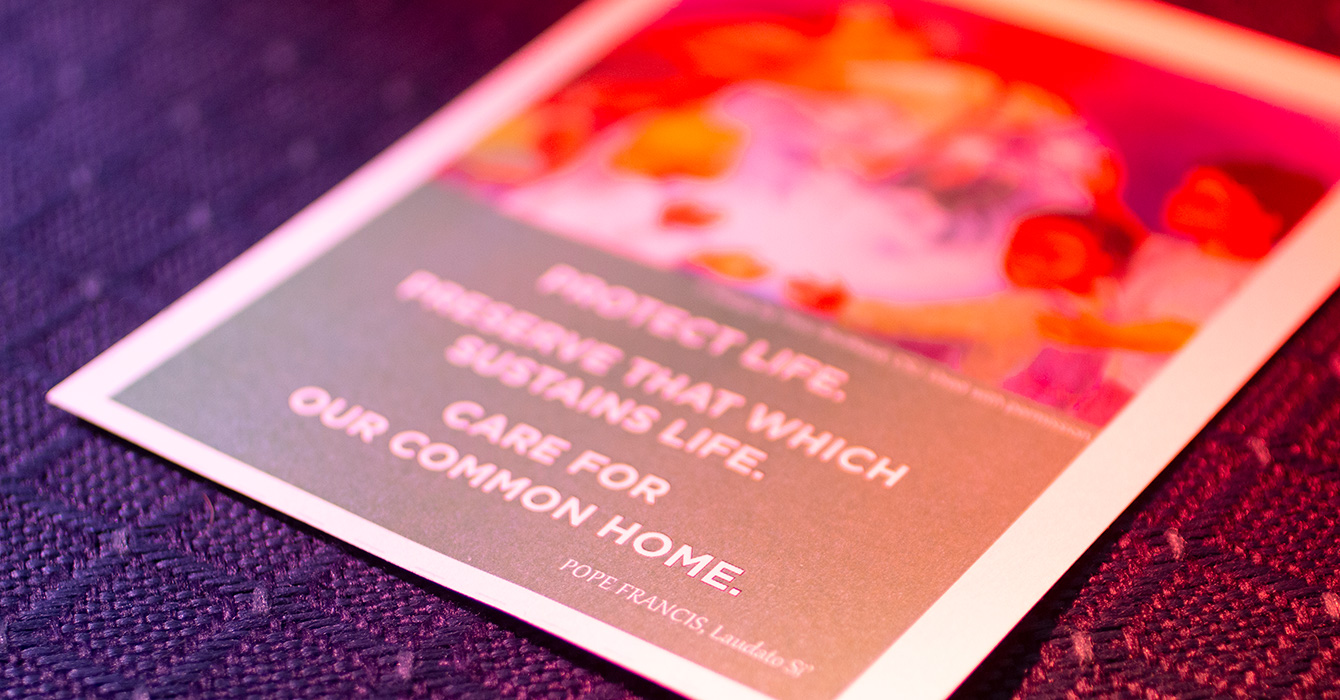
This movement was mostly quashed after the uprising’s Battle of Blair Mountain. But religious people have continued to find ways to rebel against the “company gospel.”
Blakeman sees it all the time.
Supply preaching is only her side gig — she is also executive director of Energy Efficient West Virginia and a board member of the state’s Interfaith Power & Light chapter.
In both positions, she provides faith communities with information about ways to conserve energy — from small measures like replacing incandescent bulbs with LEDs to larger investments like installing solar panels.
When she first started volunteering with environmental groups over a decade ago, Blakeman “got a lot of raised eyebrows,” she said. “But to me, it’s a natural fit. I’ve done what I can to be the bridge builder between the environmental community and the faith community in West Virginia.”
Now, partially because of efforts like hers, a small but growing number of congregations are freeing themselves from the grip of fossil fuels.
What industries are bound up in your congregation’s and community’s identities? Are there ways that their “company gospel” values conflict with your holy gospel mission?
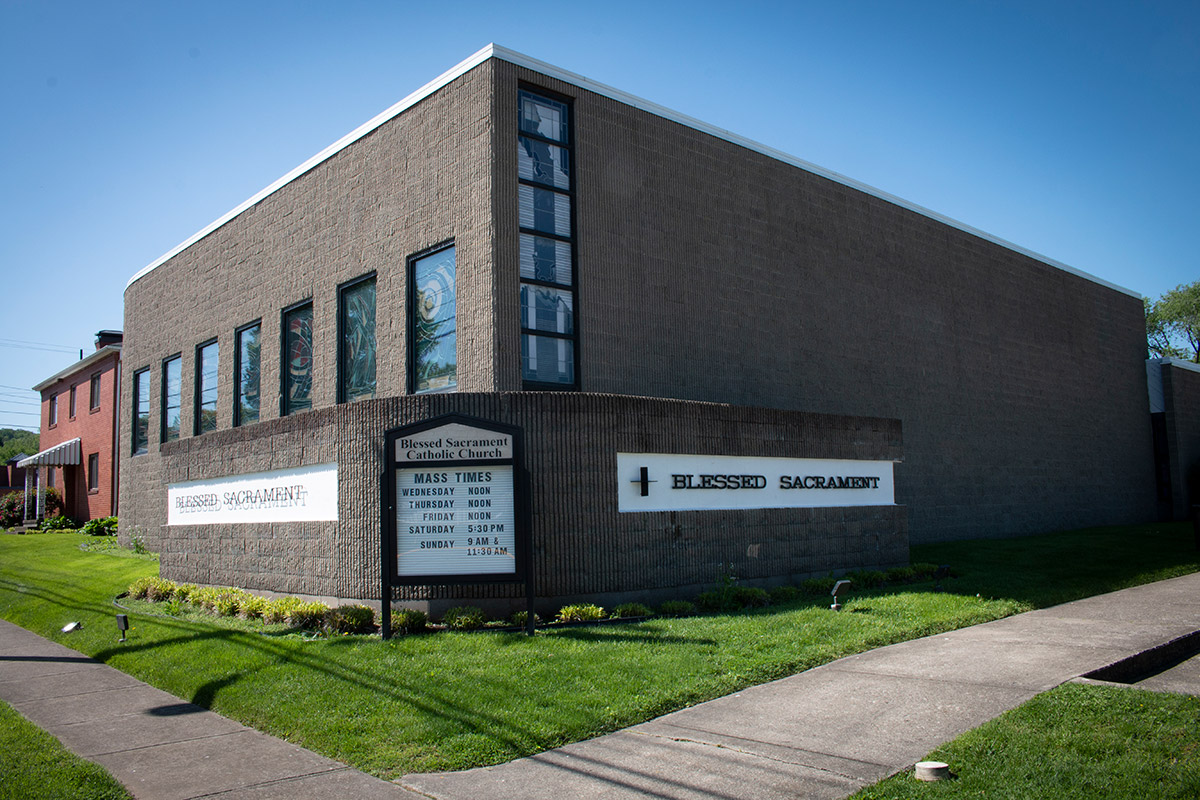
‘It made sense’
Blessed Sacrament Catholic Church in South Charleston, West Virginia, started small with its efforts to go green.
The church began by converting its old, out-of-date lighting fixtures and bulbs system to LEDs. The project resulted in an 82% decrease in energy use for lighting — earning the church a national award from Interfaith Power & Light in 2018.
This encouraged the congregation to go further. After the lighting update, the church’s energy efficiency committee focused on upgrading the campus’s old, drafty windows to better-insulated, energy-efficient versions.
Then the church replaced its old boiler — which was once used to heat a school and convent, though most of that building has now been demolished. Ted Streit, a founding member of Blessed Sacrament’s energy efficiency committee, said they could have gone with smaller gas-powered boilers but instead switched to efficient electric heat pumps.
Next, the congregation plans to install solar panels with hopes they will generate 80% of the church’s electric needs.
“It made sense for us, economically and theologically and spiritually,” Streit said.
He was initially worried the changes would be controversial. He was concerned some members might think the money saved by upgrades wouldn’t be worth the investment. He was worried about climate change skeptics in the congregation, who would think the updates were unnecessary no matter the cost.
He also wondered whether weaning the church off the grid might be seen as an affront to the fossil fuel industry, which employs many church members and their families. Even Streit, an electrical engineer by trade, has spent most of his life working with coal, oil and natural gas companies.
But the upgrades at Blessed Sacrament have found strong support.
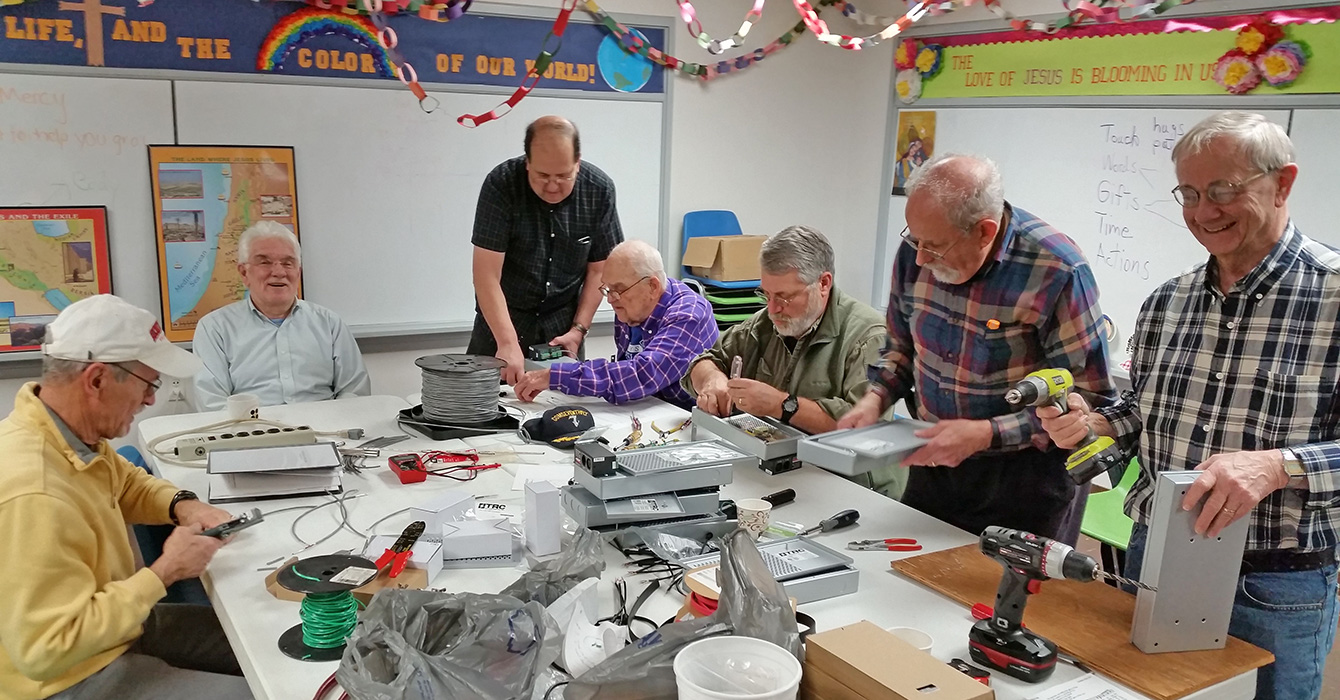
Members like Streit with engineering expertise volunteered to design the lighting project, saving the church the cost of hiring a firm to do the work. Members also donated nearly $90,000 to cover the cost of the solar panels.
Streit suspects part of the reason the energy efficiency committee has been so successful is that it did not frame the upgrades as a way to combat climate change but rather as a way for the church to be a good steward of its resources.
“People saw the benefit of lower energy use,” he said.
Blakeman said lowering utility bills is a big reason churches invest in efficiency upgrades.
“This can save you money. And a lot of churches are hurting for money,” she said.
And these energy efficiency upgrades aren’t limited to big churches like Blessed Sacrament, which has a membership of around 350 families.
Spencer Presbyterian Church, located in a small town about an hour away from West Virginia’s capital, has only eight members, most of whom are over 70 years old.
“We’re very small, but we’ve always been interested in creation and preserving creation,” said Mary Quick, the church’s spiritual director.
Thanks to a 10-year low-interest loan from their national denominational body, the church was able to install solar panels on its roof.
“We’re fortunate the national church had a tool for us to access,” Quick said. “As human beings, we’re responsible for the gift of the earth. It’s our responsibility and our privilege to take good care of it.”

Finding a new identity
Some faith communities are spreading their eco-friendly practices to the areas surrounding them.
Bethlehem Farm is an intentional community in rural Summers County, West Virginia, rooted in Catholicism but open to people of all faiths who want to learn about sustainable living.
The farm raises many of its own vegetables in an organic garden and gets its eggs from hens kept on the property. Residents limit themselves to two showers a week. They collect rainwater to flush toilets, do laundry and irrigate their crops. Buildings are mostly heated by burning wood, and most electricity comes from solar panels.
But Bethlehem Farm also carries its values into the homes of its neighbors.
The farm provides free home repairs for low-income families. As part of that work, crews replace toxic materials with safer and more durable alternatives — bamboo flooring instead of vinyl, wool carpet instead of petroleum-based versions, and foam insulation instead of fiberglass. They replace old water heaters and HVAC systems with more efficient models, and old incandescent or fluorescent lighting with LEDs they get from a donor.
And thanks to a grant from the Wheaton Franciscan Sisters, the farm has begun an even more ambitious home improvement program. Bethlehem Farm is starting to provide low- and middle-income families with zero-interest loans to help them purchase and install solar panels for their homes.
The farm even handles all the red tape — ordering the panels, finding installers and getting the electric company to install new meters at its clients’ homes.
Eric Fitts, the director of Bethlehem Farm, said the program has proved popular with people across the political spectrum. He recently visited the home of an ardent Donald Trump supporter who is taking his home 100% solar with the help of a loan.
“There he is, signing his solar contract wearing his MAGA hat,” Fitts said.
He’s found that even if clients “support” the fossil fuel industry, they aren’t willing to sacrifice their family’s finances to express that.
Davis, the Methodist pastor from coal country, sees this as the key to breaking West Virginians’ emotional attachment to the industry. He said people need to realize extractive industries aren’t only taking money from their wallets — they are also robbing their homeland of its natural wealth.
“Coal is a multibillion dollar industry, but yet coalfield counties are always the poorest in the state, and among the poorest in the nation. Somebody make that make sense to me,” he said.
“All the coal leaves, and nothing comes back.”
Brandon Dennison is the chief executive officer of Coalfield Development, a nonprofit dedicated to creating new opportunities in communities left behind by coal. This includes a spinoff company called Rewire Appalachia, which trains workers to install solar panels.
“We are coal country. We power the country. But with renewables, if you frame it right, you can build off that,” he said. “Things are changing, and if we want to stay an energy state, we have to adapt.”
Many of Rewire’s trainees previously worked in the coal industry. Dennison said some have had mixed feelings about leaving the mines behind, but they understand why it is necessary.
“We’re going through the stages of grief,” Dennison said. “And we’re getting closer and closer to acceptance.”
Investing in the future
Jeff Allen was riding shotgun in his friend’s car as they picked up the friend’s daughter from sports practice. The girl was quiet when she got in but after a moment spoke up from the back seat.
“Suddenly, she says, ‘Daddy, I’m scared,’” Allen recalled.
There was a brief stunned silence before Allen’s friend asked what was wrong.
“She said, ‘I’m afraid of climate change and the world ending.’”
How does your congregation engage in creation care? What tangible steps might you take to reduce the use of fossil fuels? What economic, theological and spiritual reasons might you have for doing so?
Allen, the executive director of the West Virginia Council of Churches, said lots of kids are feeling the same fears as the effects of climate change become more apparent.
That’s why the council is starting a new program to encourage faith-based youth groups to come up with projects designed to address climate change. Teams will make short videos about their ideas and present them at a conference for the chance to receive a $500 grant.
While their projects will be limited in scope, Allen said the grants are really about empowering kids to see climate change as something that can be fixed.
“It’s a different level of conversation. And for this generation, an existential one.”
What do youth in your context fear? What are their greatest hopes? How might you empower and support youth to take action to address the injustices, concerns and dreams they name?
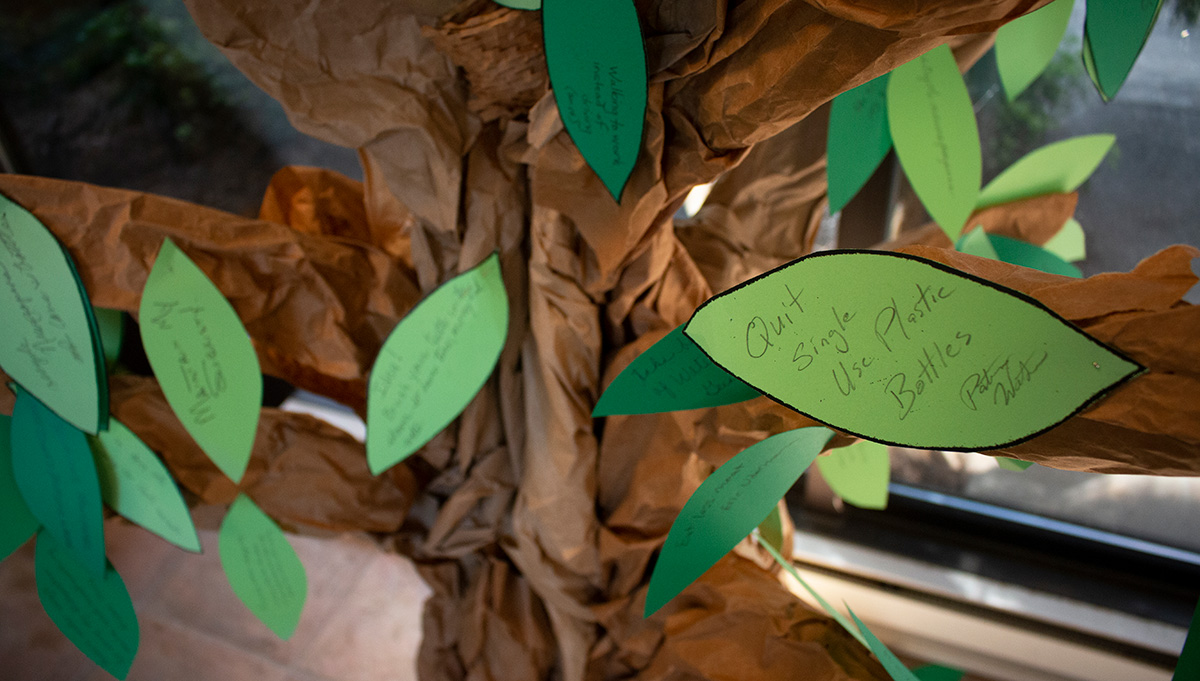
“Once you do one thing, you can do another and another and another,” Allen said. “The youth aren’t powerless — no one is powerless to do something about climate change.”
Allen said children are often taught about God’s creation and humankind’s role in it in church school, but the conversation doesn’t often continue once they get older and realize the importance of creation care.
“Maybe that’s one missing piece,” he said. “What is our place in creation? What are our responsibilities for it? And what does God say about those responsibilities?
Questions to consider
- How do you introduce challenging topics in your congregation in ways that open up conversation?
- How much do you know about the origin story of your church? How might telling the truth about your congregation’s past, including the difficult parts, create opportunities for new life?
- Who are the “miner-preachers” you should be listening to and empowering in your community?
- What industries are bound up in your congregation’s and community’s identities? Are there ways that their “company gospel” values conflict with your holy gospel mission?
- How does your congregation engage in creation care? What tangible steps might you take to reduce the use of fossil fuels? What economic, theological and spiritual reasons might you have for doing so?
- What do youth in your context fear? What are their greatest hopes? How might you empower and support youth to take action to address the injustices, concerns and dreams they name?

